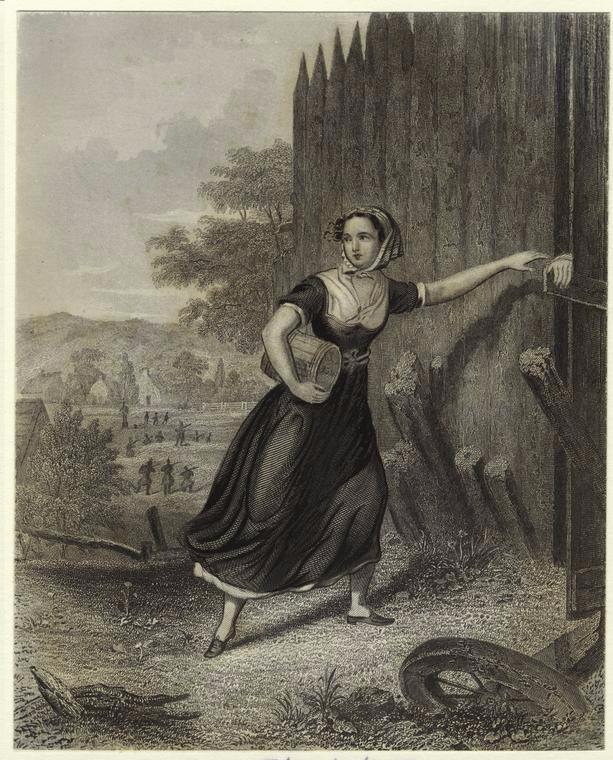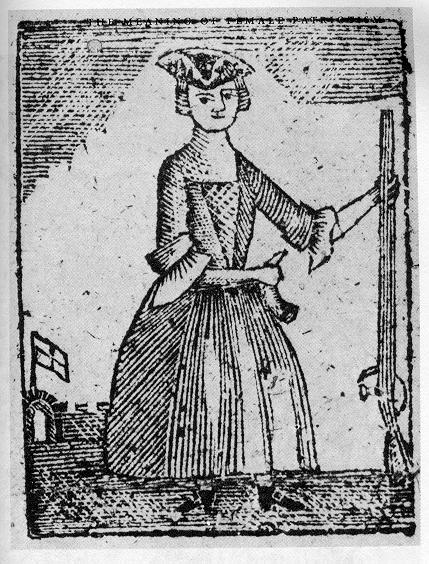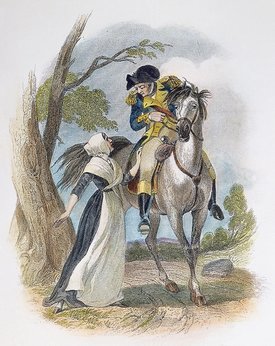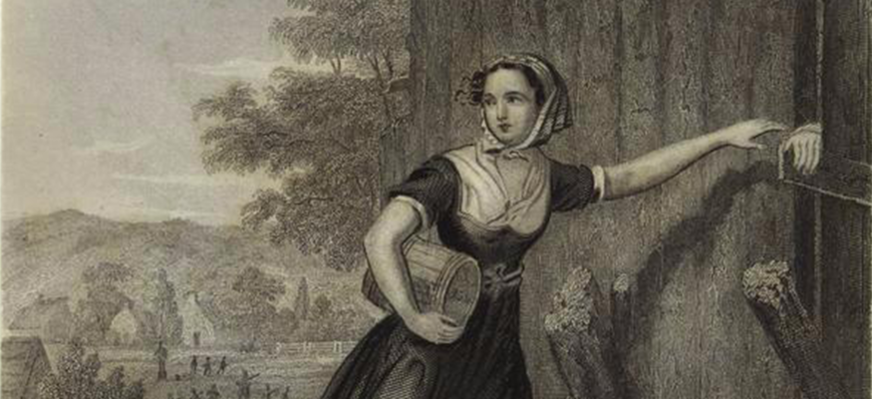Though history has often treated their contribution as a footnote, women played key roles in the advancement of liberty and the founding of America.

A few weeks ago, we discussed Mercy Otis Warren who has been referred to as the “Conscience of the American Revolution,” her influence on the founding fathers and her dedication to women’s rights. This week we will be discussing two additional patriots: Hannah Blair and Lydia Darragh.
Part of what makes Hannah and Lydia fascinating is that they were each Quakers, so their involvement in the Revolution was in direct conflict with their religious beliefs. The first Quakers came to America in the 1650s and were predominantly located in Pennsylvania. By 1774, Quakers had withdrawn from politics entirely and generally opposed the independence movement. In 1776, they declared neutrality between the British and the Rebels.
Though they believed in equality and many of the more enlightened ideas our Founders fought for (Quakers were prohibited from owning slaves, held progressive views of women’s rights, and were major influences in both the abolitionist and women’s suffrage movements), Quakers were pacifists. They were sworn to passivity and were not allowed to engage directly in violence nor were they allowed to support those who engaged in violence.
Thankfully, as far as America is concerned, both Hannah and Lydia bent the rules a bit when it came to assisting in America’s fight for independence.
The stories of Hannah Blair are a little convoluted, if not fantastical, but they all paint a picture of a woman who was both quick-witted and calm under pressure. Whether Hannah was an actual spy for the Continental Army is unclear, but what is known is that she was a farm owner in North Carolina who would often hide and care for Patriots who were wounded, give provisions to troops, and ferry messages between them.
Hannah Blair lore includes stories of her bravery. She faced numerous searches of her property by Tories looking for hidden Patriots. One time, according to legend, she hid them in a corn crib and sat in front of it nonchalantly shucking corn, telling the Loyalist leader he may search her property “as he pleases.” Another story involves her cutting open a mattress to hide soldiers, and quietly sewing it shut as Tories searched her property for them. Her actions and calm demeanor are credited for saving the lives of those men.
Over time, Hannah continued to draw attention to herself and unfortunately the British ended up burning her farm and house down for her support of the Patriots. Following the war, however, the U.S. government paid her a veteran’s pension for her efforts that led to the ultimate victory against the British.

Similarly, Lydia Darragh played a significant role in assisting one of the Revolutionary War’s main stars: George Washington. Lydia was an Irish immigrant and Quaker who lived in Philadelphia. Following the Continental Army’s losses in Brandywine and Germantown, the British had taken over Philadelphia.
Though many of the residents had fled, Lydia and her family stayed in their home, which was coincidentally located near British Commander Howe’s headquarters. As was often done (ahem, 3rd Amendment), the British would often occupy civilian homes. Given its location, the Darragh house was often used for important meetings, but because Lydia’s cousin was a British soldier, she and her family were allowed to stay in their home. During one of these meetings, Lydia hid in a closet and overheard a plan to ambush Washington’s forces at Whitemarsh on December 4th.
Citizens were not allowed to freely move around in British occupation at that time, so under the guise that she had to travel to purchase flour, Lydia traveled over 6 miles through snow to get the message to Washington’s men. She passed the message to an officer she knew and it ultimately reached Washington.
Because of Lydia’s message and commitment to helping the Patriots, and her son, who was in the army at Whitemarsh, Washington was able to create a strong defensive force Commander Howe was not able to beat. Howe came back to Philadelphia defeated, making Lydia’s information critical to the protection of American forces at the Battle of Whitemarsh.
Though neither of these women picked up a weapon and physically fought in the war, their efforts were crucial in the overall success of the Patriots at the birth of our Nation. They are examples of persons with a principled nature, standing for what they believe in, and doing what they felt was right and honorable.
As Americans, we should be eternally grateful they did so.
It is with that same spirit that we can honor what they and so many others risked their lives to accomplish, a land of freedom and prosperity, a hope of life, liberty, and the pursuit of happiness.
In the time they had on this earth, they answered freedom’s call– but it is our time now. It is now up to us to preserve all they worked for, all they accomplished.
Please stand with us now, pledging your support for a Convention of States.






